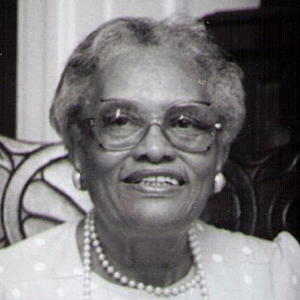Groundbreaking lawyer who won bus desegregation ruling dies at 104

Dovey Johnson Roundtree. Photo by Megavoice via Wikimedia Commons.
Dovey Johnson Roundtree, a groundbreaking Washington, D.C., lawyer who persuaded the Interstate Commerce Commission to issue a ruling banning racial segregation on buses has died at 104.
Roundtree died Monday from complications from Alzheimer’s disease, her cousin and law partner Jerry Hunter told the Washington Post. The New York Times and the Charlotte Observer also have stories.
Roundtree was one of few black women practicing law when she formed a law firm with a classmate after graduating from Howard University’s law school in 1950. She was the first black woman admitted to the Women’s Bar Association of the District of Columbia.
She attended law school on the GI Bill after becoming one of the first woman to attain the rank of captain in the Women’s Army Corps.
During law school, Roundtree helped Thurgood Marshall and other NAACP lawyers in their work on Brown v. Board of Education, the landmark school desegregation case.
In private practice, Roundtree represented criminal defendants who often couldn’t afford to pay. “We worked for eggs and collard greens,” Roundtree once said.
One of her most famous cases was the representation of Raymond Crump Jr., a poor black man accused in the death of the white Washington socialite Mary Pinchot Meyer, who was shot and killed while walking near a canal. Crump told police he had been fishing nearby and nearly got shot himself. Witnesses said they had seen a black man near the body.
Roundtree won an acquittal after pointing out that Crump was only 5-foot-3 and 130 pounds, while witnesses said the black man they saw was about 5-foot-8 and 185 pounds.
In the bus case, Roundtree represented a black woman, an Army Corps private, who refused to give up her bus seat to a white Marine in 1952. The Interstate Commerce Commission ruled for Roundtree in 1955, though the ruling wasn’t enforced until 1961 after the activist Freedom Riders were attacked while trying to integrate buses.
The Times spoke with biographer Katie McCabe about Roundtree’s influence. “As a woman, and as a woman of color in an age when black lawyers had to leave the courthouse to use the bathrooms, she dared to practice before the bar of justice and was unflinching,” McCabe said. “She was a one-woman Legal Aid Society before people used that term.”



